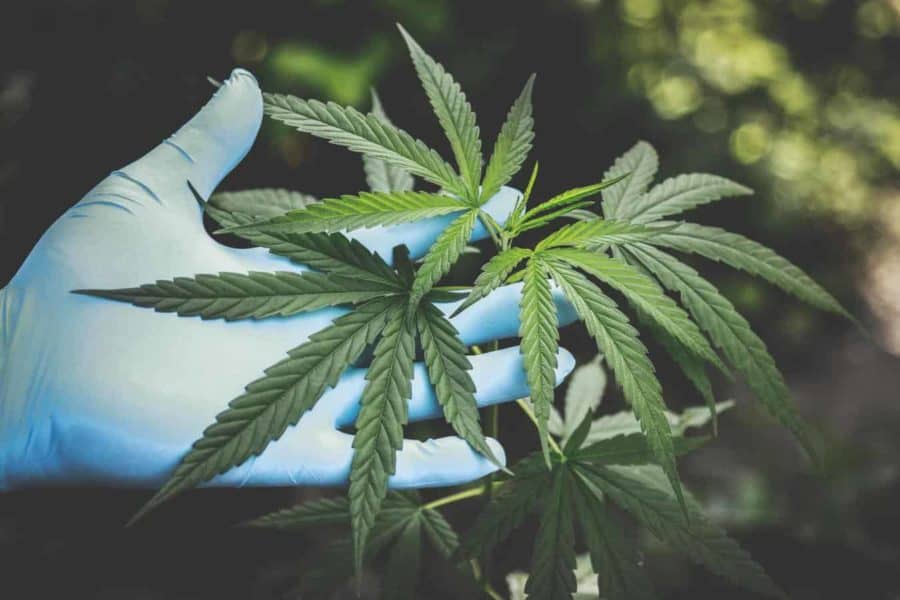A new study has uncovered a surprising link between marijuana use and elevated nicotine levels in patients considering plastic surgery. This finding raises important questions about patient screening and potential surgical risks.
Researchers at Hofstra University School of Medicine found that patients who reported using marijuana had higher levels of nicotine in their system, even when they didn’t use tobacco or other nicotine products. The study, published in the September issue of Plastic and Reconstructive Surgery, suggests that marijuana use might be an overlooked source of nicotine exposure.
ASPS Member Surgeon Joseph A. Ricci, lead author of the study, stated: “We found that patients who report marijuana use also have elevated urine nicotine and cotinine levels – even those who don’t smoke or use other nicotine-containing products. This raises concerns that unsuspected nicotine exposure might lead to an increased risk of postoperative complications.”
Hidden Risks in Cosmetic Procedures
The study examined 135 patients consulting surgeons about cosmetic plastic surgery. Of these patients, 20% reported using marijuana, with 7% using marijuana alone and 13% using both marijuana and nicotine products.
Surprisingly, the researchers found elevated nicotine and cotinine levels in marijuana users, regardless of whether they reported using nicotine products. This unexpected nicotine exposure could have significant implications for patient safety during and after surgery.
Nicotine is known to impair wound healing, a critical concern for plastic surgery procedures. The rising popularity of marijuana, combined with newer nicotine delivery products like vapes, presents a challenge for healthcare providers in identifying patients exposed to nicotine.
Implications for Patient Care and Surgical Outcomes
While the study didn’t find increased complication rates among marijuana users or those with elevated nicotine levels, the findings raise concerns about potential risks. Most patients who reported marijuana and/or nicotine use on the study survey did not mention these substances during their discussion with the plastic surgeon.
Dr. Ricci and his colleagues write: “Patients may be hesitant to disclose their substance use history, possibly due to a lack of awareness about the perioperative risks associated with smoking and marijuana use.”
The researchers emphasize the need for further studies to definitively determine the effects of marijuana on surgical outcomes. They conclude: “In real clinical settings, under-reporting of nicotine-containing product use, including marijuana, remains a concern for unrecognized surgical risk and affects decision on offering elective procedures.”
Why It Matters
This research highlights the importance of comprehensive patient evaluation before elective procedures. As marijuana legalization continues to spread and its use becomes more commonplace, the medical community may need to adapt its screening protocols.
For patients considering plastic surgery, this study underscores the importance of full disclosure about all substance use, including marijuana. Even if patients don’t consider themselves nicotine users, marijuana use could potentially expose them to unexpected surgical risks.
For surgeons and healthcare providers, these findings suggest a need for more thorough screening processes and patient education about the potential risks associated with marijuana use before surgery.
As we continue to learn more about the complex interactions between marijuana use and medical procedures, studies like this one play a crucial role in improving patient safety and surgical outcomes.
Quiz:
- What percentage of patients in the study reported using marijuana?
- According to the study, how might marijuana use potentially impact plastic surgery outcomes?
- Why might patients be hesitant to disclose their marijuana use to surgeons?
Answers:
- 20% of patients in the study reported using marijuana.
- Marijuana use might lead to unexpected nicotine exposure, which could potentially impair wound healing and increase the risk of postoperative complications.
- Patients might be hesitant to disclose their marijuana use due to a lack of awareness about the perioperative risks associated with its use, or fear of judgment from healthcare providers.


